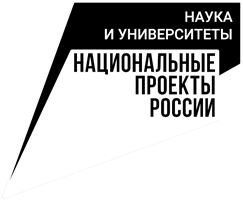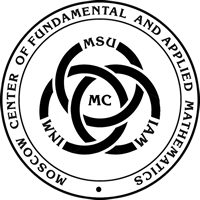The seminar is devoted to various aspects of the application of supercomputer modeling methods for solving weather and climate forecasting problems.
Seminar Leader:
- Sadovnichy V.A., academician, rector of Lomonosov Moscow State University
Co-leaders of the seminar:
- Wilfand R.M., Doctor of Technical Sciences, Scientific Director of the Hydrometeorological Center of Russia
- Dobrolyubov S.A., Corr. RAS, Dean of the Faculty of Geography, Lomonosov Moscow State University
- Lykosov V.N., Corr. RAS, chief scientist Institute of Computational Mathematics, Russian Academy of Sciences, Head. Laboratory of Supercomputer Modeling of Natural and Climatic Processes of RCC MSU
- Stepanenko V.M., Doctor of Physics and Mathematics, Deputy Director of RCC MSU
Scientific Secretary of the seminar:
- Mortikov E.V., Ph.D., Researcher of RCC MSU
PROGRAM
17:30
| M.I. Varentsov | Research Computing Center of Moscow State University Geography Faculty of Moscow State University Hydrometeorological Center of Russia A.M. Obukhov Institute of Atmospheric Physics of RAS Moscow Center of Fundamental and Applied Mathematics RUDN University, Center of smart technologies for sustainable development of urban ecosystems in the context of global changes |
NUMERICAL MODELING AND EXPERIMENTAL RESEARCH IN THE FIELD OF URBAN METEOROLOGY AND CLIMATOLOGY ON THE EXAMPLE OF THE MOSCOW MEGAPOLIS AND CITIES OF THE ARCTIC ZONE OF THE RUSSIAN FEDERATION
Modern climate change, urban growth and development, as well as the increased demands of society for the comfort and safety of the urban environment, determine an increasing scientific and public interest in fundamental and applied research in the field of urban meteorology and climatology. This scientific direction is developing at the junction of various fields of earth sciences, including directly meteorology, physical and mathematical modeling, atmospheric physics, remote sensing, geoinformatics, etc. For example, one of the important and urgent tasks is the development and implementation of parametrizations necessary to describe an urban surface in numerical weather and climate models. However, its solution is impossible without defining the parameters of the urban environment necessary for modeling and creating the corresponding spatial databases. Practically in all studies in the field of urban meteorology and climatology, the issue of the lack of actual observation data in the urban environment, which is necessary for the study of the urban climate and the factors of its formation, for the verification of models, as well as for the tasks of operational monitoring, is especially acute. Many large cities of Russia and the world are not covered at all by representative meteorological data. This forces one to turn to alternative sources of information - remote sensing data and crowdsourcing, or to organize experimental measurements.
The report will present the experience of solving the above scientific problems on the example of the author's works, performed in co-authorship and close cooperation with colleagues from the Geography Faculty of Moscow State University, Research Computing Center of Moscow State University, Hydrometeorological Center of Russia, A.M. Obukhov Institute of Atmospheric Physics of RAS and other organizations. Using the example of the Moscow metropolis, the experience of modeling the weather and climate of urbanized territories within the framework of the mesoscale model of the atmosphere COSMO and determining the input parameters of the urban environment required for the model, as well as the results of empirical studies based on data from various monitoring systems, including crowdsourced data from the largest network of personal weather stations, Netatmo, will be considered. A separate area of research is connected with the Arctic cities, which are unique experimental sites for studying the influence of anthropogenic load on the microclimate, ecosystems and processes in the atmospheric boundary layer. However, until recently these territories remained terra incognita of urban climatology. To fill the knowledge gap, it was necessary to organize a series of experimental measurement campaigns using a variety of observing tools, from automatic weather stations and temperature sensors to uploading by unmanned aerial vehicles.
Due to the self-isolation regime, the seminar will be held in the form of a webinar on the Zoom platform.
To participate in the webinar, we ask you to enter your data in the Google spreadsheet:
https://docs.google.com/spreadsheets/d/1TOD9Zwz8t-iblTySDRYxn-LPXvntFpPwIT0_5N8lfYA/edit?usp=sharing
A link to the Zoom conference will subsequently be sent to your email address.
Instructions for installing and using the Zoom platform are available here:
https://support.zoom.us/hc/ru/articles/201362033-Начало-работы-на-ПК-и-Mac

